Results
-
 £40.00
£40.00Hedwig's Theme - John Williams
Hedwig's Theme from Harry Potter And The Sorcerer's Stone arranged for Brass Band by Andrew Duncan. Music by John Williams. Includes Score and Parts.
Estimated dispatch 5-14 working days
-
 £45.00
£45.00Selections - John Williams
Selections From Harry Potter And The Sorcerer's Stone arranged for Brass Band by Steve Sykes. Music by John Williams. Includes Score and Parts.
Estimated dispatch 5-14 working days
-
£60.99
The Lost World - John Williams
This film was the follow-up to Jurassic Park and the music was composed by the peerless John Williams- the king of film music. Klaus van der Woude has arranged the signature tune to the Lost World for brass band.
Estimated dispatch 5-14 working days
-
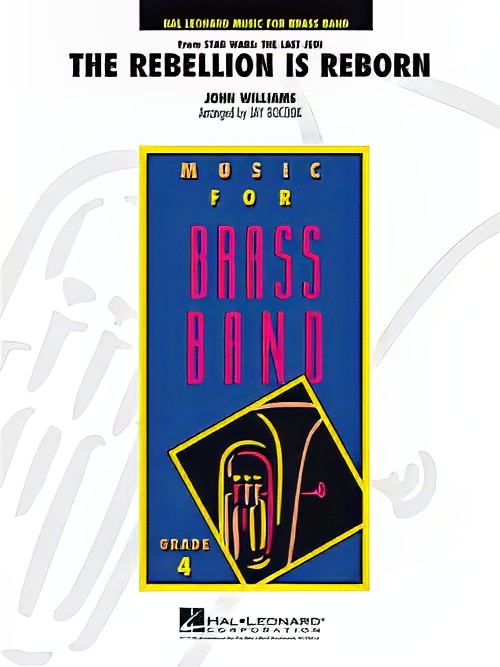 £76.99
£76.99The Rebellion is Reborn (from Star Wars: The Last Jedi) (Brass Band - Score and Parts) - Williams, John - Bocook, Jay
From Episode VIII of the Star Wars saga, here is a masterful setting for mature bands. Based on the concert edition created by Mr. Williams himself, The Rebellion is Reborn brings the excitement and drama of The Last Jedi to the symphonic stage. Duration: 4.15
Estimated dispatch 7-14 working days
-
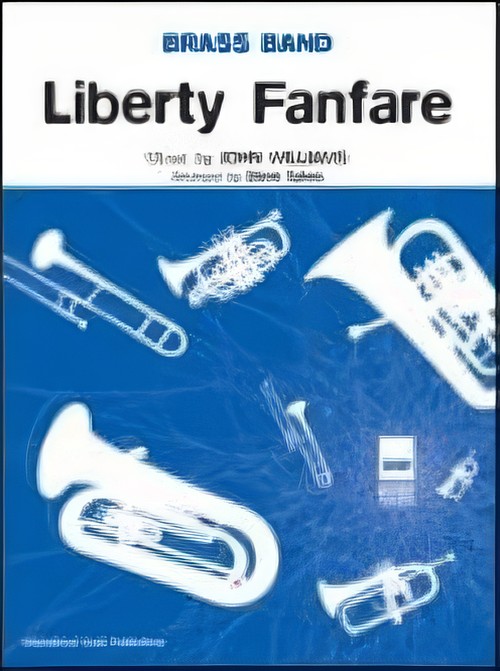 £34.99
£34.99Liberty Fanfare (Brass Band - Score and Parts) - Williams, John - Sykes, Steve
The Liberty Fanfare is one of John Williams's lesser-known works, simply because it is not a film theme! In fact, the orchestral original was written for the re-opening of the Statue of Liberty following extensive repairs. This took place on the 4th of July (1986), hence the music's sense of celebration and national pride.Suitable for Advanced Youth/3rd Section Bands and aboveDuration: 5:00
Estimated dispatch 7-14 working days
-
 £25.00
£25.00Carol of the Bells (Brass Band - Score and Parts) - Littlemore, Phillip
This popular Christmas piece was composed by Mykola Leontovych around 1916. It is based on a Ukrainian folk chant known as 'Shchedryk', a New Year's carol. However, it was not until after the composer's death in 1921 that it was first introduced to Western audiences, when the Ukrainian National Choir included it on their tour of Europe and the Americas that same year. The film composer John Williams incorporated it into the score for the 1990 film Home Alone and he is credited for bringing it to a wider audience still, although it had been released on Christmas albums by a number of popular artists before that. This transcription for brass band has been adapted from the arrangement by Robert Prizeman, who created it for Libera, the world famous boys choir that he both founded and directs. Their unique, enchanting and, some say, heavenly sound delights audiences throughout the world through extensive concerts, recording and TV broadcasts. This brass band transcription introduces this skilled choral arrangement to a new genre and a whole new audience as well. Duration: 3.00
Estimated dispatch 7-14 working days
-
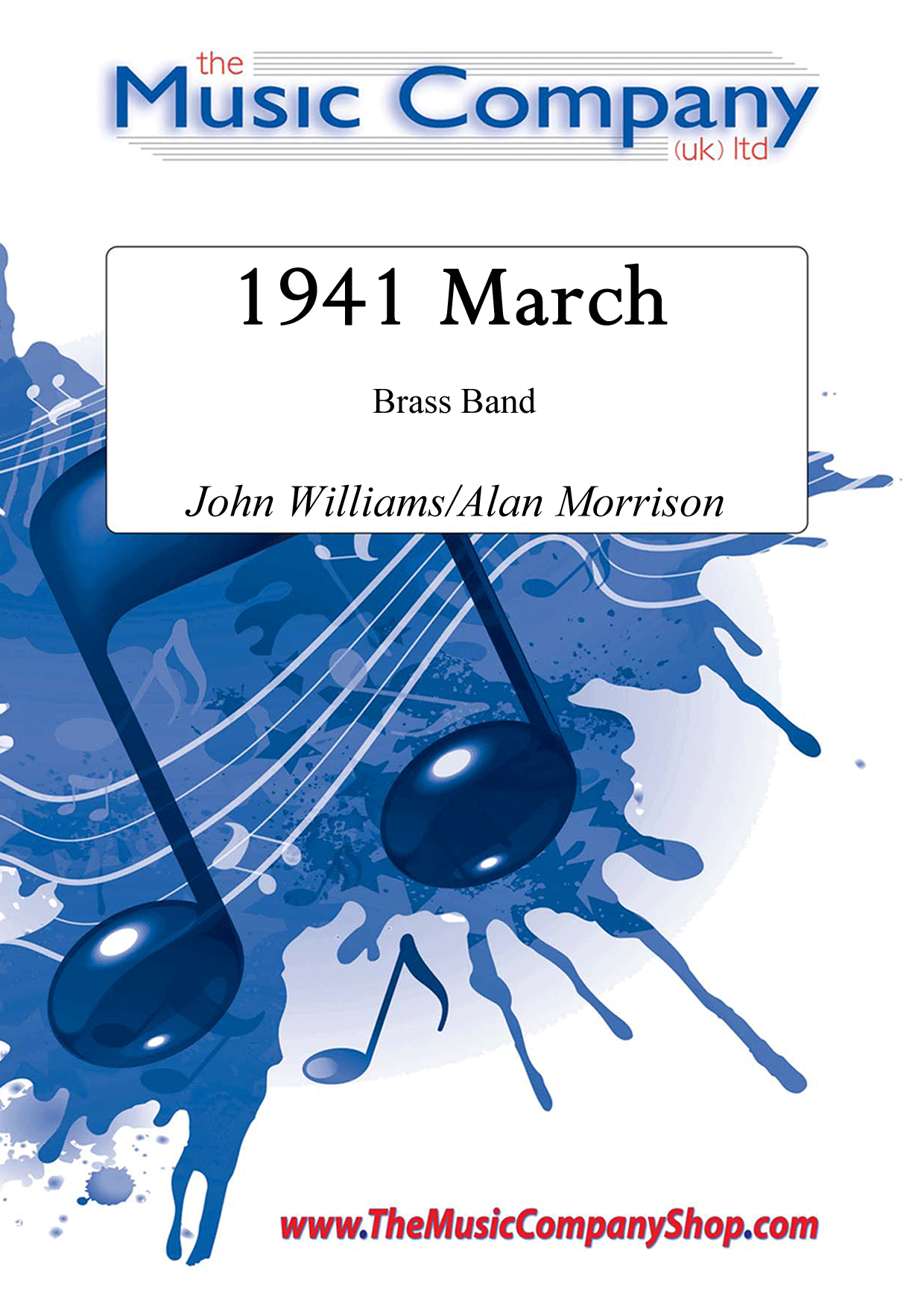 £30.00
£30.001941 March - John Williams
From the film '1941'. Being true to the original, Alan Morrison's arrangement of this march for brass band ensures the effects and atmosphere of the original title track from the film 1941 are maintained to their full potential.It's a challenging march, but the rewards are great and it makes for an enthralling concert opener.
In Stock: Estimated dispatch 3-5 working days
-
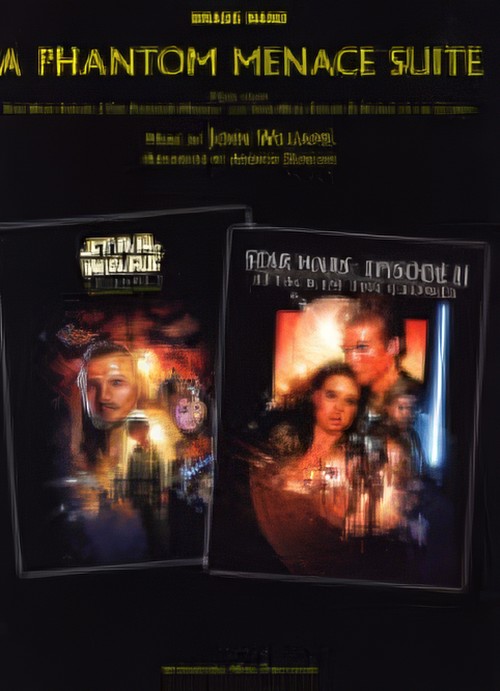 £49.99
£49.99A Phantom Menace Suite (Brass Band - Score and Parts) - Williams, John - Duncan, Andrew
Andrew Duncan has brought together three key themes from the first tow of the Star Wars prequels, 'Star Wars: The Phantom Menace' and 'Star Wars: Attack of the Clones', providing an exciting addition to any concert.Suitable for Advanced Youth/3rd Section Bands and aboveDuration: 6.00
Estimated dispatch 7-14 working days
-
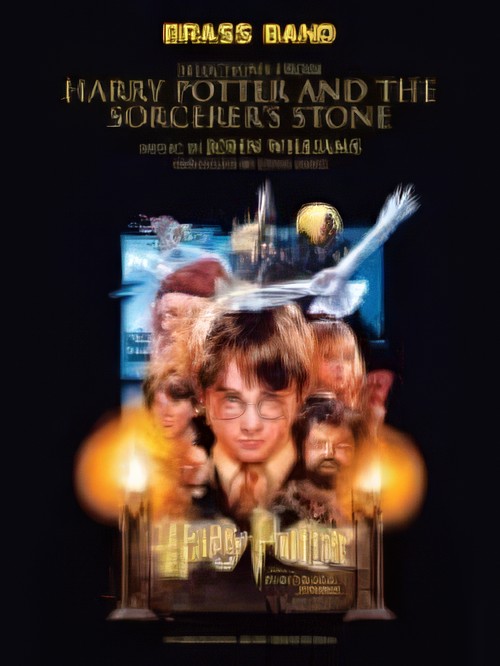 £45.00
£45.00Harry Potter and the Sorcerer's Stone, Selections from (Brass Band - Score and Parts) - Williams, John - Sykes, Steve
Better known in the UK as Harry Potter and the Philosopher's Stone, this is the first of J.K. Rowling's Harry Potter novels - the seven-part tale of Harry Potter's training as a wizard and his coming of age. This arrangement by Steve Sykes includes some of the best-known themes from the film score.Suitable for Advanced Youth/3rd Section Bands and aboveDuration: 8.00
Estimated dispatch 7-14 working days
-
 £54.20
£54.20OLYMPIC SPIRIT (Brass Band) - Williams, John - Jenkins, Christian
Medium - written for the 1988 Seoul Olympics
Estimated dispatch 7-14 working days
